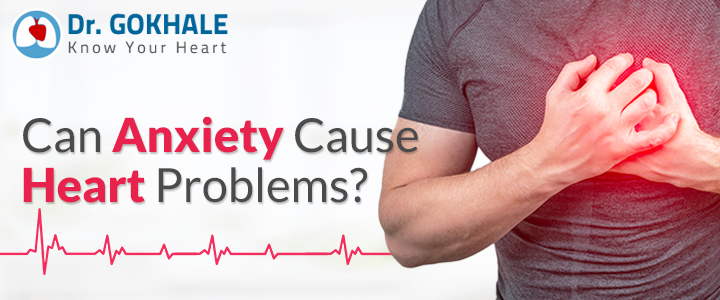Millions of people around the globe are affected by anxiety, a widespread mental health condition that is marked by emotions of fear, concern, and unease. These emotions can manifest in physical symptoms, including a rapid heartbeat, sweating, and trembling.
Although anxiety is typically considered a psychological disorder, some individuals may wonder if it can also lead to heart problems. In this article, we will examine the relationship between anxiety and heart problems and respond to frequently asked questions.
How does anxiety affect the heart?
Anxiety can affect the heart in multiple ways. Firstly, it triggers the “fight or flight” response of the body, resulting in the release of stress hormones like cortisol and adrenaline. These hormones increase blood pressure, heart rate, and respiration, which prepare the body for a perceived threat. Although this response can be helpful in short-term stressful circumstances, chronic activation of the stress response can lead to detrimental health outcomes, including heart problems.
Even though there are experts to conduct heart transplantation in India, it is advised to relax wherever possible. Anxiety can cause inflammation in the body, which is a risk factor for heart disease. Continuous inflammation can damage blood vessels, leading to atherosclerosis, a condition that hardens and narrows the arteries and increases the risk of heart attacks and strokes.
Thirdly, anxiety can result in lifestyle factors that increase the risk of heart disease, such as smoking, excessive alcohol consumption, and an unhealthy diet. People with anxiety may adopt these behaviours to manage their symptoms, which can worsen their health issues. Cumulatively, these act like the minor causes of heart problems.
How to manage anxiety to prevent heart problems?
To prevent heart problems in individuals with preexisting heart conditions and reduce the risk of developing heart disease, it is crucial to manage anxiety. There are several effective ways to manage stress such as:
1. Practice relaxation techniques:
Relaxation techniques like deep breathing, progressive muscle relaxation, and meditation can reduce anxiety symptoms as well as symptoms of heart problems.
2. Exercise regularly:
Regular exercise not only improves cardiovascular health but also reduces anxiety symptoms by promoting the release of endorphins, which are natural mood-boosting chemicals that enhance mood and decrease anxiety.
3. Seek therapy:
Managing anxiety can be challenging, and seeking therapy can be beneficial. By talking to a mental health professional, you can learn effective coping strategies and develop ways to manage your anxiety.
4. Medication:
In some cases, medication may be necessary to manage anxiety symptoms effectively. A few medications like anti-anxiety medications, antidepressants, and beta-blockers can be prescribed to help manage anxiety symptoms.
Anxiety does not have a direct connection to heart problems, but it may raise the chances of developing heart disease in those who already have a pre-existing heart condition. This can lead to a situation where a heart transplant Hyderabad might be needed.
If you’re experiencing symptoms of anxiety or are concerned about your heart health, it’s essential to seek advice from a qualified healthcare provider. Dr. Gokhale is a reputable physician who specializes in cardiovascular health and offers comprehensive and personalized care to his patients. He’s an excellent choice for anyone looking for guidance and treatment for heart-related issues due to his expertise and compassionate approach.













